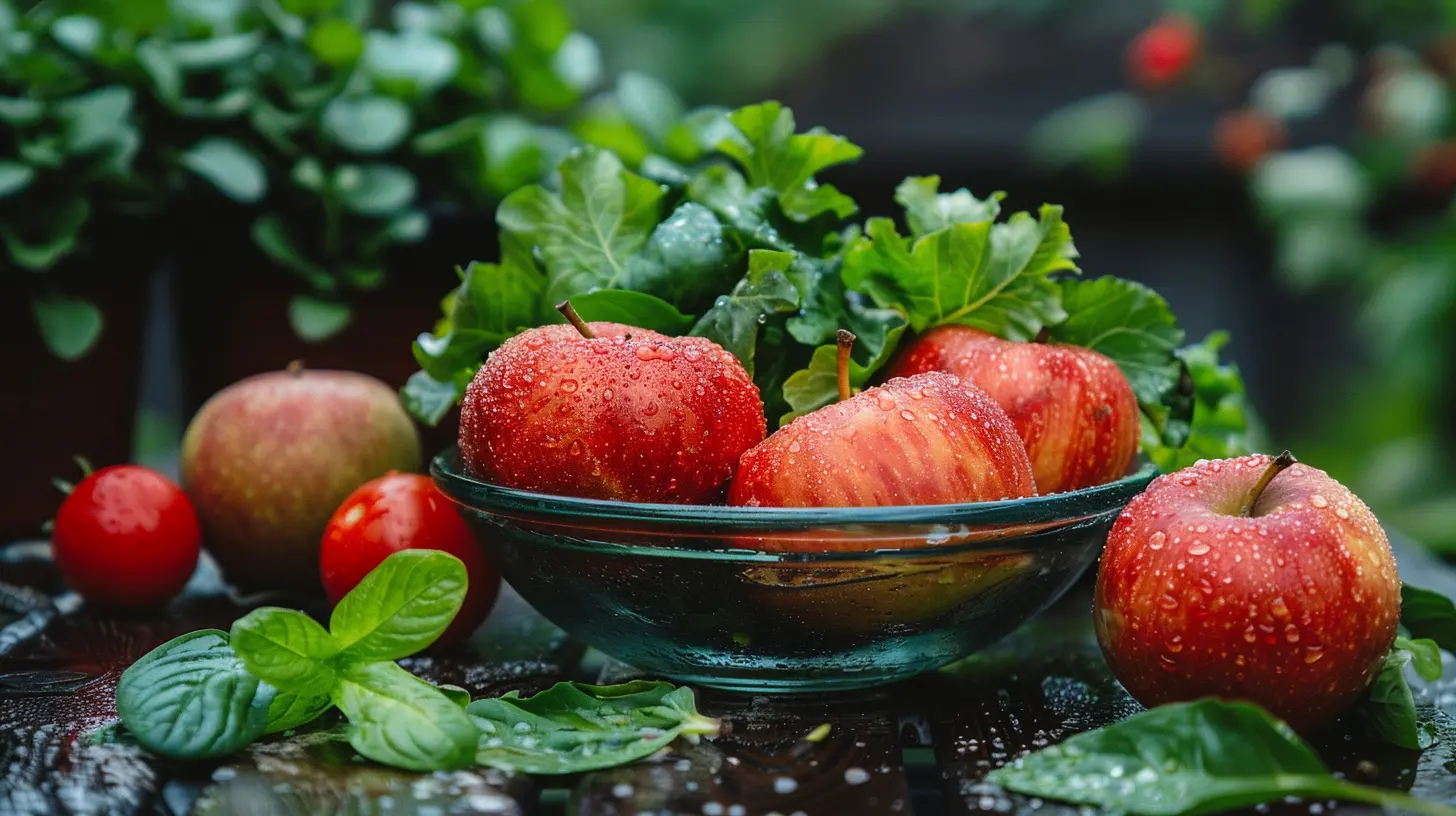The Science Behind Effective Weight Loss Strategies
5 September 2025
Let’s face it—losing weight can feel like trying to solve a Rubik’s cube blindfolded. One minute keto is king, and the next, intermittent fasting is being hailed as the holy grail. With so much noise out there, it’s no wonder you’re confused. So, let’s cut through the hype and get to the core of what actually works when it comes to shedding pounds. Spoiler alert: it’s not magic, it’s just science.
In this article, we're diving deep into the science behind effective weight loss strategies, breaking it down into bite-sized, understandable chunks. We’ll touch on metabolism, calorie balance, hormones, diet composition, exercise, and yes—why your mindset matters more than you think.
What Is Weight Loss, Really?
Let’s start simple. Weight loss happens when your body uses more energy (calories) than it consumes. This creates what science calls a caloric deficit. Think of your body as a car. Calories are the fuel. If you burn more gas than you put in the tank, over time, the tank starts to shrink. That’s weight loss in a nutshell.But we’re not just talking about losing any weight. We're talking about fat loss—because losing muscle or water doesn’t help your health or aesthetics in the long run.
The Role of Metabolism in Weight Loss
What Exactly Is Metabolism?
Metabolism is your body’s engine. It includes all the chemical processes that keep you alive—from breathing to digestion. But when people talk about metabolism and weight loss, they’re mostly referring to Basal Metabolic Rate (BMR), which is the number of calories your body burns at rest just to function.What Affects Your Metabolism?
While some folks seem to have a “fast” metabolism and can eat whatever they want (lucky them), others gain weight just looking at a donut. Here's why:- Age – Metabolism slows with age
- Muscle Mass – More muscles = higher metabolism
- Genetics – Some people are just born with quicker engines
- Hormonal Factors – Thyroid, insulin, and cortisol play key roles
Good news? You can rev up your metabolism by building muscle and staying active. Even small tweaks can lead to big results over time.
Calories In vs. Calories Out: It’s Not That Simple
Yes, the basic principle of weight loss is calories in versus calories out. But it’s not just a numbers game. The type of calories and how your body processes them matters.Quality Over Quantity
Ever felt stuffed after eating a big meal from a fast-food joint, then hungry an hour later? That’s because not all calories are created equal.- 100 calories from broccoli ≠ 100 calories from soda
- Whole foods require more energy to digest and keep you full longer
- Processed foods are absorbed quickly and spike insulin levels, encouraging fat storage
So, while creating a calorie deficit is essential, focusing on the quality of your calories can make your journey easier and healthier.
Hormones: The Hidden Key to Fat Loss
You could be doing everything right—eating well, moving your body—but still not losing weight. Hormones could be the invisible hand holding you back.Insulin – The Fat-Storage Hormone
Insulin’s main job is to regulate blood sugar levels. But when it's constantly high (due to a high-carb, high-sugar diet), your body stays in storage mode and resists burning fat. Lowering insulin by cutting back on refined carbs can help unlock your fat stores.Ghrelin & Leptin – Hunger & Fullness
- Ghrelin is the hunger hormone—it tells your brain it's time to eat.- Leptin tells you when you're full.
Poor sleep, stress, and junk food can mess with these hormones, leading to overeating even when your body doesn’t need more food.
Cortisol – The Stress Hormone
Chronic stress can hike up cortisol, making your body cling to belly fat like it’s gold. That's why managing stress isn’t just good for your mental health—it’s crucial for your waistline too.Nutrition: The Foundation of Fat Loss
What you eat is way more important than how much you sweat in the gym. You can’t out-train a bad diet. Repeat that again.Protein: Your Weight-Loss Wingman
Protein isn’t just for bodybuilders. It helps you:- Stay fuller longer
- Preserve lean muscle while losing fat
- Burn more calories through digestion (known as the thermic effect)
Aim for about 0.8 to 1 gram of protein per pound of your goal body weight.
Fiber: The Unsung Hero
Fiber adds volume without calories, keeps you full, and stabilizes blood sugar. Stock up on:- Veggies
- Fruits
- Whole grains
- Legumes
Fats & Carbs: Don’t Demonize Either
Healthy fats (like avocado, nuts, olive oil) are vital for hormone health and satiety. Carbs, especially from whole-food sources like sweet potatoes, oats, and fruits, provide energy and essential nutrients. The key? Balance.Exercise: The Accelerator, Not the Engine
Exercise is like the turbo boost for your fat-loss efforts. But here’s the truth—it’s not as crucial for weight loss as your diet is. That doesn’t mean it’s not important.Why Exercise Still Matters
- Burns calories and improves calorie deficit- Preserves muscle mass, especially during weight loss
- Boosts metabolism through post-workout calorie burn
- Improves mood and reduces stress
Which Exercises Are Best?
- Strength Training: Builds muscle, boosts metabolism, and shapes your body- HIIT (High-Intensity Interval Training): Burns fat in less time
- Walking/Cardio: Great for burning extra calories and improving heart health
The best workout? The one you’ll stick to. Consistency trumps intensity.
Sleep and Stress: The Silent Saboteurs
Here’s a wild fact—lack of sleep can make you eat up to 400 extra calories the next day. Why? Because sleep affects hunger and satiety hormones.- Less sleep = more ghrelin
- More ghrelin = constant hunger
Add stress into the mix, and your body starts craving comfort food while hoarding fat. Prioritize 7-9 hours of quality sleep and find ways to manage stress (meditation, journaling, walks, or even just deep breathing).
The Psychology of Weight Loss
Let’s talk mindset for a minute. Because what’s going on between your ears matters just as much as what’s going on your plate.Why Mindset Trumps Willpower
Willpower is like a phone battery—it drains throughout the day. Mindset, on the other hand, is a long-term power source.- Set realistic goals (Aim to lose 1–2 pounds per week)
- Practice self-compassion instead of guilt
- Understand your emotional triggers
- Develop a growth mindset—Treat setbacks as setups for comebacks
Habits > Motivation
Motivation will fade—it always does. But habits? They stick. Focus on building small, sustainable behaviors like meal prepping, daily walks, drinking more water, or journaling your progress.Popular Diet Trends: What Works and What Doesn’t
There’s no shortage of trendy diets—keto, paleo, vegan, carnivore, intermittent fasting (IF), you name it. So which ones actually work?The truth? All diets work if they put you in a calorie deficit, but sustainability is key.
- Keto: Helps suppress appetite—great short-term, hard to sustain
- Intermittent Fasting: Simplifies meal planning, but not magic
- Mediterranean Diet: Balanced, heart-healthy, and backed by science
- Flexible Dieting (IIFYM): Allows treats in moderation, focuses on macronutrients
The best diet is the one you can stick to long-term without feeling miserable.
Putting It All Together: A Practical Blueprint
Alright, let’s summarize everything into an actionable strategy:1. Create a moderate calorie deficit (300–500 calories/day)
2. Eat more protein and whole foods high in fiber
3. Lift weights 2–4x weekly and stay active daily
4. Get 7–9 hours of sleep every night and manage stress
5. Track your progress, but don’t obsess over the scale
6. Stay consistent—progress, not perfection
Final Thoughts
Weight loss isn’t some mystical puzzle only fitness gurus can solve. It’s rooted in science, driven by your daily habits, and shaped by your mindset. Yes, it can be tough—but it’s totally doable. Give your body what it needs, respect the process, and stay consistent. You’ve got this.Remember, it’s not about being perfect—it’s about being persistent.
all images in this post were generated using AI tools
Category:
Weight LossAuthor:

Laurie Barlow
Discussion
rate this article
1 comments
Isla Diaz
Embrace the journey, where mindful choices blend; science guides us, health’s sweet reward awaits.
September 21, 2025 at 3:05 AM

Laurie Barlow
Thank you for your thoughtful comment! Embracing mindful choices indeed enhances our weight loss journey, combining science with sustainable habits for lasting health benefits.


